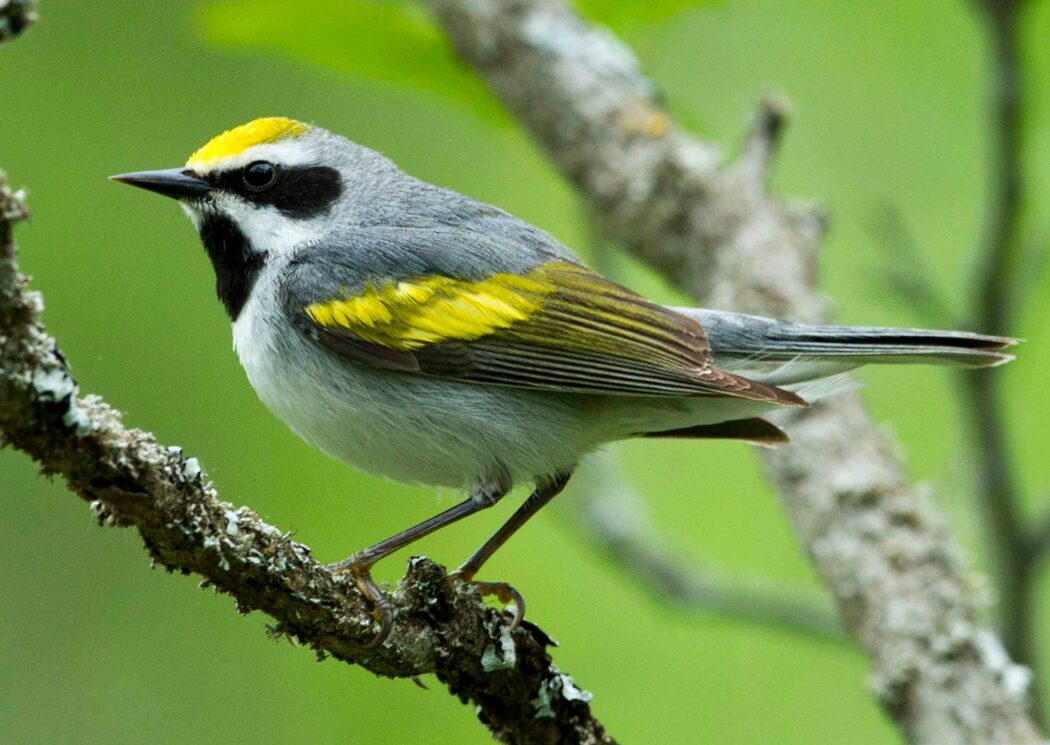Golden-winged warblers (Vermivora chrysoptera) are slim, silver-gray birds with patches of bright gold on their head and wings. Hence the name “golden-winged.”
Lack of funding is threatening the survival of this and hundreds of other species.
If you wish to see golden-winged warblers in person, you might have trouble finding them with your binoculars. And it’s not because they are small in size.
Golden-winged warblers have experienced one of the steepest population declines of any songbird in recent decades.
The birds prefer shrubby habitats nearby to open woodlands–called early successional habitats–created and maintained by disturbances such as storms, logging, wildfires, and flooding. But these types of habitats are shrinking fast.
Right now, there isn’t steady funding to manage nongame species such as the golden-winged warbler.
Recovering America’s Wildlife Act could change that.
The Act would provide $25.6 million in funding each year to help conserve Tennessee species in greatest conservation need. If passed, the Act could help get conservation efforts underway for the warbler and many other species in need of help.
LEARN MORE>> Conservation funding issues
Featured photo by Mark Peck




